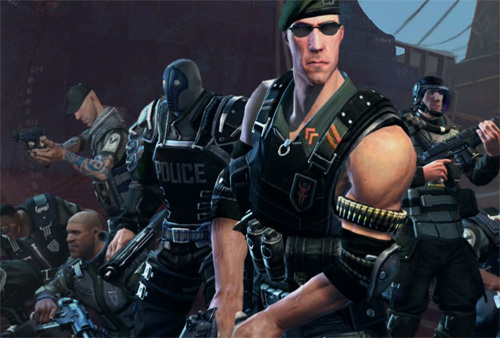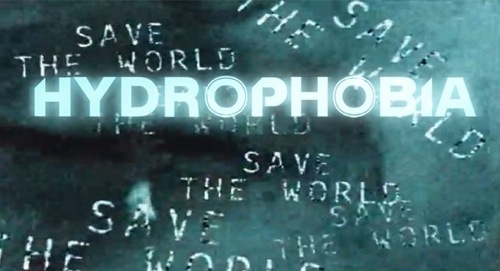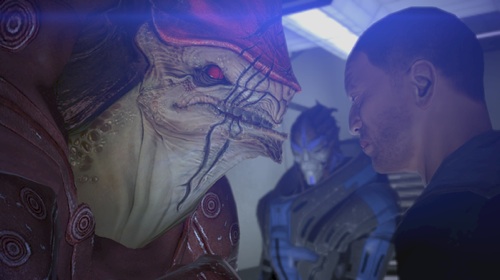I’m not talking about overpopulated servers in on-line
games, I’m talking about a controversial theme even in fictional stories: humans overpopulating
the Earth. Population control is generally left as the goal of
utterly immoral villains, and conquering alien races. Still even when voiced by evil-doers, the concept of
population control is rare in games, and virtually non-existent as
the goal of a protagonist.
The debate about overpopulation is the value of
human life: Quality of life versus
quantity of life. The recently-released game Brink deals
with this to some extant. Brink is
set on a floating city called Ark that was designed to house five thousand
people. Yet trouble comes in the
form of fifty-thousand refugees who flood the city demanding their share of
Ark’s resources. Players can
choose sides in Brink, and either fight as refugee terrorists, or as Ark
Security, who are viewed as fascists and elitists. It’s only been out for a day, but we’ll see which group is
favored by players in the months to come.

A game with a similar setting and theme is Hydrophobia.
Recently ported to PC, this obscure title also has a utopian floating
city that runs into trouble because of a band of terrorists. However this time the terrorists aren’t
demanding that the city’s limited resources be divided among a horde of
people. Hydrophobia’s terrorists are trying to commit mass murder on a
global scale in order to deal with the rising tide of excess people.
Naming themselves after the 18th century
philosopher Thomas Malthus, Hydrophobia’s “Malthusian” terrorists use the motto
“Save the world, kill yourself”, hoping to reduce the world’s total allotment
of humans to a about one tenth of the current crop. This is an extreme interpretation of Malthus’ views (He
essentially suggested eating less beef, and raising the minimum age of marriage as solutions to the problem).
Despite the interesting story concept, the game faired poorly on its
initial release platform, the XBox 360 due to mediocre gameplay and sub-par voice
acting.

Half life 2 put
Valve’s hero Gordon Freeman up against the evil Combine who were out to conquer
humanity. Guns, giant robots and
an army of goons were most of the plan, but the Combine also had another weapon
in plan way to annihilate humanity:
Forced Sterilization. Valve needed to demonize their bad guys
as far as possible, so they decided that the Combine should have access to a
device that prevented humans from reproducing.
If you paid very close attention to the story in Resident
Evil Five, you’d have gleaned that the whole point behind this zombie adventure
was that Resident Evil Arch-Villain, Albert Wesker wanted to decimate the
global population, assuming that the genetically superior humans would survive,
while virtually everyone else died off.
Previous games showed Wesker motivated by money, power, and just being a
jerk, yet for the big fifth game, he was given the most socially un-acceptable
motivation imaginable: Population Control.
Bioware is known for leaving moral decisions to the Player;
if you want to be evil in a Bioware game, there are always plenty of innocent
shopkeepers to shakedown. In the
Mass Effect series one of the ongoing subplots is the Krogan Genophage, a
disease engineered to cull the numbers of an alien race called the Krogan. The Player has several choices about the
genophage over the course of the two Mass Effect games; as Commander Shepard
you are given the option of preserving data related to a possible cure, or
helping to destroy it. For once,
players could express their own views on population control (Pro or con), and the developers tried to give both choices a sense of being the right
thing to do.

More recently, the indie scene addressed overpopulation in
Fate of the World, which also tried to address many other social issues. It’s a
sim game that puts players in control of a global government, and engineering a
virus to get rid of excess people is one of the options in the game.
Our culture is focused on the notion that all life is precious to such an extent that only the vilest of bad guys are shown promoting the notion that we have “Enough” people. With the world’s population veering toward seven billion
starving, destitute humans, population control is no longer the domain of sci-fi
metaphor like Soylent Green, but a pressing social issue that deserves more attention
from all media, including gaming.